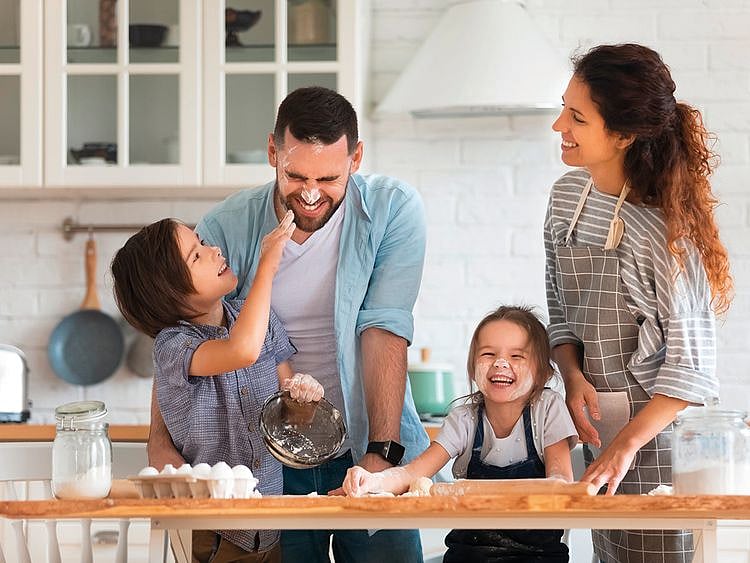Expert tips to improve your emotional well-being
Life coach Russell Hemmings offers tips to strengthen your bonds with loved ones

Often when it comes to New Year’s resolutions the first thing that springs to mind is to focus on improving your physical health. Topping the list of most popular resolutions is usually a commitment to getting fit, closely followed by the determination to break a habit that is adversely affecting your health. All very laudable aims of course, but also very much about symptoms as opposed to causes.
That’s why for this New Year, Russell Hemmings, life coach and cognitive behavioural hypnotherapist, and author of The Mind Diet and Active Positive Parenting, decided to explore something far more fundamental to overall wellbeing– how to improve emotional well-being. Relationships with loved ones are at the core of our sense of self. When they are going well they enhance our own feelings of self-worth and our mental wellbeing. This, in turn, helps to power our progress and self-actualisation. Conversely, when things are not so good between ourselves and those we love, life can feel very challenging.
Here are Russell’s five tips to help you reset and renew.
1. Develop your sense of emotional choice. Recognising that feeling and behaviour are two different things can be helpful if you sometimes find it hard to keep your emotions in check. We don’t have a choice about how we feel, but we do have a choice about how we behave. Giving yourself time to examine your emotions before you act upon them can save you a lot of heartache when it comes to relationships. Walking away from possible conflict, getting yourself in a calm space and giving yourself a short time to think about how you can redirect your feelings in a more constructive fashion can help to de-escalate tension and get you and your loved one back on an even keel.
2. Examine your silent communication. Body language, tone of voice and facial expressions all convey our inner thoughts to others without us speaking a word. Children and older people are particularly sensitive to this. Learning to read non-verbal communication in yourself and others can give you the edge when it comes to interacting. You can use it to build trust, show empathy and also get your point across and influence others positively. It’s a skill worth investing in, because it pays such great relationship dividends.
3. Acknowledge when you’re in the wrong. Not always easy this one, but acknowledging when you’ve hurt others with your actions not only models humility and emotional integrity, but also proves you can forgive yourself and makes it easier to forgive others too.
4.You have two ears and one mouth for a reason! All relationships have disagreements and that’s normal, but what truly matters is how you communicate with each other when things go awry. Of course it’s good to talk, but it’s even more important to listen. Try to develop the skill of listening with understanding as opposed to just listening because you’re waiting to respond. Good listening builds empathy and helps to limit how judgemental you are towards others.
5.Be affirming. For loved ones to truly know how you feel about them you need to tell them. Affirming positive attributes in others and telling those you love that you actually do love them may sound simple, but it’s so often overlooked in the course of a normal day. Not only will it help you feel good to say it, it will also help those you love develop self-belief. A win-win!
Sign up for the Daily Briefing
Get the latest news and updates straight to your inbox
Network Links
GN StoreDownload our app
© Al Nisr Publishing LLC 2026. All rights reserved.